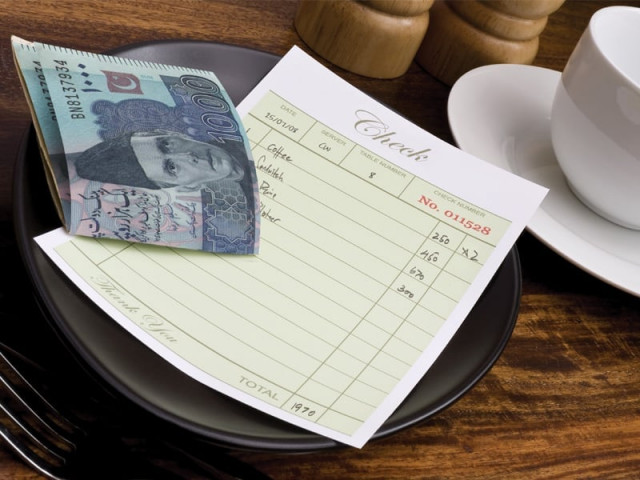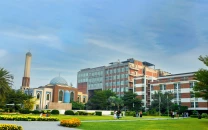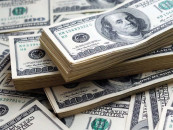Culinary zeitgeist: The food business in Pakistan
Opportunities in the sector can provide the base to build a sustainable economy.

Culinary zeitgeist: The food business in Pakistan
With its population approaching 200 million, consumer businesses should take off in Pakistan, if the right amount of capital is invested and an appropriate marketing strategy is adopted.
Food products stand above all in consumer products. Given the expected food shortage and food security concerns in many countries, including Pakistan, growers of food commodities and other food-related businesses are expected to benefit immensely in the decades to come.
Pakistan is a huge and growing market for food. In big cities like Karachi and Lahore, restaurants of all types and sizes are jam-packed during opening hours. Looking at the restaurant business, it appears that very little, including economic uncertainty, has adversely affected food consumption. The popular media has also picked up on this culinary zeitgeist and almost all the TV channels in the country have programmes on cooking and other aspects of food.
For some years a number of ‘food streets’ have sprouted up in different cities, most notably Karachi, Lahore and Islamabad. In terms of growth potential and expansion, Lahore offers exciting opportunities. The area that stands in the shadow of the historical Badshahi Mosque is a great example of regeneration that the government of Punjab successfully undertook. Such regeneration projects in different parts of the country are not only developing a culture of sophisticated culinary habits, but are also creating sustainable employment opportunities for many.
Other newly-established food streets and similar developments include Sea View restaurants and Port Grand Food Street.
Creating business opportunities around the consumption of food is arguably the foundation of a sustainable economy, especially in a country the size of Pakistan. There are numerous examples of successful global food businesses that have contributed immensely to the economies of their respective countries of origins. McDonald’s is perhaps the best example of such a success story, with gross revenues of over $34.17 billion (2012 figures). In terms of financials, McDonald’s is bigger than Latvia, as the latter’s GDP of $26.14 billion (2011 figures) was smaller than McDonald’s annual revenue for the same year ($27 billion). Although Subway is the largest restaurant chain in the world in terms of the number of restaurants (37,000 outlets), McDonald’s remains the largest in terms of total revenue.
Local food businesses in Pakistan like Bundu Khan (Karachi & Lahore), Salt & Pepper (Lahore), Savour Restaurant (Rawalpindi & Islamabad), Bar-B-Q Tonight (Karachi and Islamabad etc) and Chicken Dabu (Gujranwala) have great potential to grow as national and eventually international brands.
These are private businesses that have received no support from the government in terms of business development and developing into national brands. In fact, some popular food brands (eg Nirala Sweets, Shezan and Ambala) have been trademarked by independent parties in UK.
However, indigenous owners of these traditional brands in Pakistan have no share in the success of these companies. They failed to appreciate and follow international patent laws. Culpability does not lie entirely at their feet. Owners fail to recognise the international potential of their brands.
If nothing is done on the government level to protect such brands, either these businesses will gradually lose their competitive advantage or some bigger foreign businesses will take them over. This has already happened in case of the production of packaged milk and mineral water – the two businesses now totally dominated by Nestle.
On the back of the large domestic market, Pakistan’s food businesses can eventually thrive in the international market. This is not impossible but because of the lack of initiative from the government, Pakistani cuisine does not have a distinct identity in the international market.
Most Pakistani restaurants in UK operate under the umbrella of the Indian Tandoori restaurants. Pakistani restaurants have simply failed to create a distinct genre like Mediterranean, English, French, Chinese, Lebanese and Indian foods. This is a pity and if no government support is accorded to the local popular food businesses to enter the international market, then even the likes of Afghan food will take over the market from Pakistani-owned businesses overseas.
THE WRITER IS AN ECONOMIST AND A PHD FROM CAMBRIDGE UNIVERSITY
Published in The Express Tribune, October 1st, 2012.



















COMMENTS
Comments are moderated and generally will be posted if they are on-topic and not abusive.
For more information, please see our Comments FAQ